Over the course of the last decade, Apple has become more and more intertwined with Saudi Arabia, and four months after its crown prince visited Apple Park, the regime appears to have carried out the murder of an American journalist. Why Apple should do all it can to disengage from the Saudi regime.
In the recent past, as it has expanded globally and attained record-breaking success, Apple has found itself dealing with a lot of countries, and foreign governments, that have been known to do bad things.
Tim Cook has often said in interviews, usually in relation to China, that Apple supports openness and liberalization, that Apple both has a duty to make the world a freer and better place, and has actually done so. iPhones and other products, the thinking goes, can do their part to open up the world for those in less-than-free countries. With China specifically, the question of human rights has begun to take a back seat to issues related to trade and U.S./Sino relations.
Now, Apple and other major tech companies are facing a major test of that principle, with Saudi Arabia.
On October 2, Jamal Khashoggi, a dissident Saudi journalist who lived in the United States and wrote for The Washington Post, entered the Saudi consulate in Istanbul, Turkey, to obtain some documents related to his planned marriage. He never came out, and was never seen alive again. The Turkish government soon concluded that Khashoggi was tortured, murdered and dismembered by a sizable group of assassins, most likely with the high-level approval of the Saudi regime. There were reports that Khashoggi's Apple Watch may have recorded the murder or otherwise produced evidence, although that has yet to be substantiated.
After weeks of obfuscation and shifting explanations, the Saudi government admitted Friday that Khashoggi is dead, but claimed that he died as a result of a "fight" after he entered the embassy. They continue to deny that the Saudi government had ordered his murder.
The murder has thrown into question the long and complicated alliance between the U.S. and Saudis. The U.S. defended Saudi Arabia from potential invasion by Saddam Hussein in 1990. But, the majority of the 9/11 hijackers came from Saudi Arabia, as did al-Qaeda mastermind Osama Bin Laden.
But it also shows that Apple's tolerance for doing business with despotic regimes should have a limit.
Meet MBS
Khashoggi's death has placed a spotlight on Saudi Arabia's young crown prince and de facto ruler, Mohammed bin Salman, who is commonly referred to in the English-language media as "MBS." He's 33 years old, and represents a very different face than the typical leadership of the Saudi monarchy, which has produced several consecutive monarchs who were much older upon taking the throne. The last six Saudi kings have been brothers, but MBS is the son of Salman, the current king.
For a period of a couple of years prior to the murder. MBS had been embarking on a major international campaign to sell the Saudi regime as modernizing and forward-thinking, and to portray himself as a young, tech-savvy and charismatic reformer (this April article from The New Yorker is a good overview of MBS' history and position.) And that campaign included, just four months ago, a high-profile visit to Apple Park.
MBS in Cupertino
The crown prince, along with a large Saudi government delegation, made a two-week visit to the United States in March and April of this year, where MBS met face to face with a wide swath of the American elite, from the Trump Administration to corporate executives to Hollywood luminaries to even World Wrestling Entertainment.
Part of that visit included, on April 7, a meeting at Apple Park with Tim Cook and other Apple executives. Among the topics discussed was reportedly a plan geared towards "enriching the Arabic educational content in the classroom," while the Saudi contingent also toured the Apple Park campus itself, including the Steve Jobs Theater.
No major initiatives or deals were announced between Apple and the Saudis, although the regime did get some photo opportunities that were soon disseminated worldwide. The Saudi delegation, according to a local news report at the time, bought out the entire Four Seasons hotel in East Palo Alto for the visit.
On the same day, MBS huddled with top executives at Google, as well as leading Silicon Valley venture capitalists. He also met, during the U.S. visit, with Amazon CEO Jeff Bezos, who is also the owner of The Washington Post, the newspaper that employed Jamal Khashoggi. Bezos has been quiet, avoiding public comments or condemnations on the matter since the murder of one of his employees.
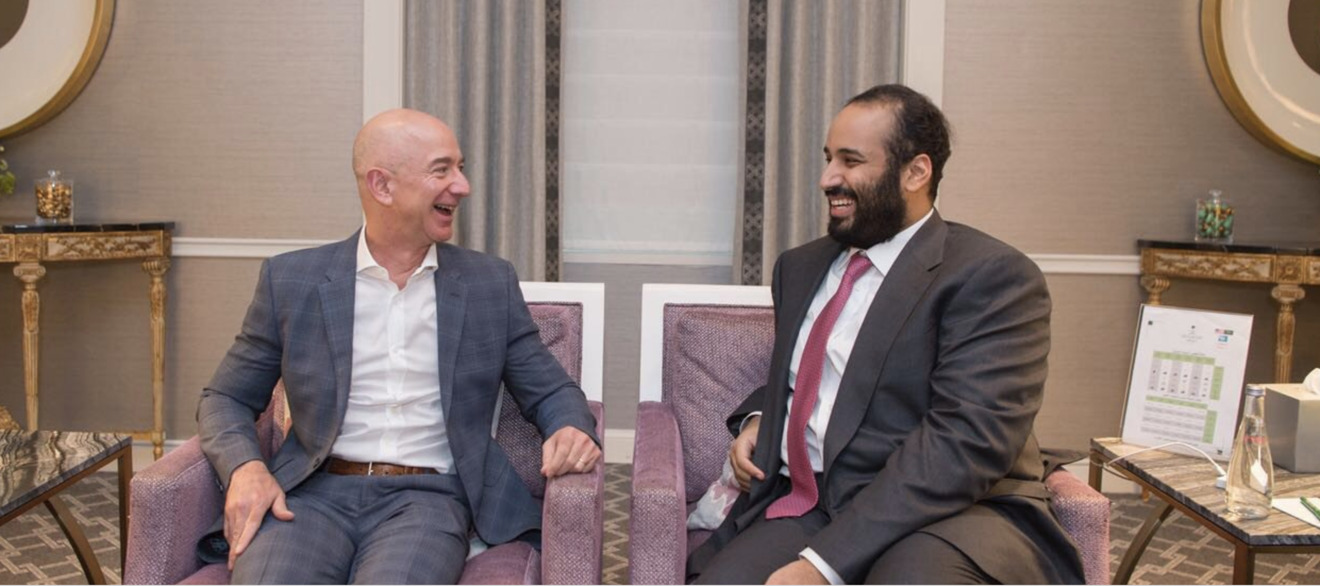 MBS and Amazon founder Jeff Bezos, during the Saudi Prince's U.S. visit in April. (Source: Saudi Press Agency)
MBS and Amazon founder Jeff Bezos, during the Saudi Prince's U.S. visit in April. (Source: Saudi Press Agency)A lot of well-known people in the government, media, and Hollywood fell hard for the campaign. New York Times columnist Thomas Friedman, in late 2017, wrote an already infamous column titled "Saudi Arabia's Arab Spring at Last," which credulously bought every one of MBS' assurances about modernization and liberalization.
MBS met with Oprah. He sat with Kobe Bryant. World Wrestling Entertainment (WWE) reached a lucrative ten-year deal to present live events in Saudi Arabia, one that included both a prohibition on WWE's thriving women's division from participating in the Saudi events and the airing of pro-regime propaganda on WWE's TV shows:
Video WWE aired during GRR in April celebrating Saudi government pic.twitter.com/AzSdUotwAZ
— Brandon Howard Thurston (@BrandonThurston) October 10, 2018
Even Dwayne "The Rock" Johnson, the wrestler-turned-movie star, praised MBS in an Instagram post following a private dinner in Los Angeles with the crown prince- one also attended by News Corp founder Rupert Murdoch, Disney CEO Robert Iger, director James Cameron and actor Morgan Freeman. The dinner was seen as an attempt by MBS to get the Saudis into the game of investing in major motion pictures, as China has been doing for years:
Meanwhile, while President Barack Obama's Mideast policy was more geared towards building a balance of power between Saudi Arabia and Iran, the Trump Administration has leaned much more heavily towards the Saudis, with the president visiting Riyadh on his first foreign trip in May of 2017. That visit included the signing of a $110 billion arms deal between the countries, and presidential advisor and son-in-law Jared Kushner has since reportedly become close with MBS.
Questioning the Prince
However, even before the death of Khashoggi there were plenty of reasons for skepticism about the Saudis' modernization push. For one thing, Saudi Arabia remains a hereditary monarchy, with not even a hint of real democratic reforms in the offing. Also, this is far from the first time the Saudi rulers have made a high-profile to sell themselves as modernizers to Western audiences.
Al-Waleed bin Talal, another Saudi prince, even took the step years ago of investing in American tech companies and philanthropies- including Apple. Al-Waleed purchased a 5 percent stake in Apple, for $115 million, in 1997, around the time Steve Jobs returned to the company. He reportedly sold most of his Apple shares around 2005, but the prince provided a significant amount of a cash at a time when Apple's future was seriously in question- not that much less, in fact, than Microsoft famously invested that same year.
"We believe he is a small owner but [much] less than he owned years ago," said analyst Daniel Ives, managing director of equity research for Wedbush Securities. However, Ives described Al-Waleed as "a big historical supporter of the Apple story."
That same Prince Al-Waleed was arrested in the spring of 2017 by MBS, as part of a widespread purge of princes and government ministers, aimed at "anti-corruption" but suspected by some as the crown prince consolidating his power by eliminating rivals.
And Saudi Arabia- with U.S. weapons and support- has since 2015 been carrying out an intervention in Yemen's civil war that a United Nations office says has included the blatant commission of war crimes.
The Vision Fund
Not only have the Saudi royals rubbed elbows with a wide variety of Americans' favorite political leaders, athletes, and entertainers, but the Saudis have invested in a long list of companies that Americans use every day.
The Silicon Valley visit, in addition to public relations, was part of a Saudi effort to diversify the kingdom's long-held image as an economy dominated by oil, and instead play up its efforts to invest in the tech space. And the key to this, for them, is the largest private equity fund in the world, the Softbank Vision Fund, jointly backed by the Japan-based SoftBank and Saudi Arabia's sovereign wealth fund. Apple, at the time of its launch, invested $1 billion in that very same fund.
Apple, SoftBank announced in May 2017, was an initial investor in the Vision Fund, along with such companies as Foxconn, Qualcomm and Sharp. "Apple is planning to invest $1 billion in SoftBank's Vision Fund," Apple told Techcrunch at the time. We've worked closely with SoftBank for many years and we believe their new fund will speed the development of technologies which may be strategically important to Apple."
When the Vision Fund launched in 2017, $45 billion of its $93 billion came from the Saudi government, through its Public Investment Fund. About half of the Saudis' investment has already been tapped, according to the Washington Post, but there are plans for a second fund. When it comes to Khashoggi, SoftBank is "anxiously monitoring" the situation, Reuters reported this week.
The Vision Fund has, according to Crunchbase, launched 36 investments to date, including major positions in such household-name companies as Uber, Slack, WeWork, and Fanatics. That means that if you hailed an Uber, sent a message to your boss, or purchased a sports jersey, your life has been touched by the Saudi-backed Vision Fund in ways that extend further beyond existing ties between Apple and Saudi Arabia.
More recent investments by the fund have included such startups as Compass, Loggi, Brandless, Cohesity, and DoorDash. According to a Techcrunch report published days before Khashoggi's murder, the Vision Fund has "vice clauses," which prevent it from investing in tobacco, firearms or other such disreputable product categories.
Meanwhile, Tesla CEO Elon Musk claimed in August that he had obtained financing to take the company private, in a move that landed him in hot water with the SEC. Musk said at the time that his his purported financing was from what he described as "the Saudi Arabian sovereign wealth fund," which the CEO said had been attempting for two years to invest in Tesla.
Apple in the Kingdom
So, Apple has invested in the same fund as the Saudis, and has hosted its crown prince at its headquarters. Beyond that, Apple has more of a tangential relationship with Saudi Arabia.
Apple products are available in the country, mostly through third party dealers, and have been ever since a series of deals in 2014. Apple does not have offices or employees in Saudi Arabia.
In July, a store opened at the King Khalid International Airport in Riyadh, described in Saudi media reports as an "official Apple Store." Opened in partnership with the adjacent Virgin Megastore, the store looks exactly like a standard Apple Store in every way except its small size. Another store, known as an "Apple Shop" but also resembling an Apple Store, opened in 2015 in Jeddah, also in partnership with Virgin.
However, the list on Apple's website of Apple Stores does not include any Saudi Arabia locations, nor does it list the kingdom as among the countries where the Apple Store does business. Reuters reported in December of 2017 that Apple was in talks with the Saudi government, with hopes that a licensing agreement would be reached by February, paving the way for Apple Stores to open in Saudi Arabia in 2019. However, no such deal was ever announced.
Apple has more of an established relationship with the United Arab Emirates, a neighboring country which is closely allied with Saudi Arabia. The three stores in UAB — two in Dubai and one in Abu Dhabi — are currently the only Apple Stores in the Middle East, although reports this summer say Israel will open one soon.
Apple's website's only mention of KSA has to do with repair policies in that country.
Apple has been quiet
Apple has made no official comments about its relationship with Saudi Arabia since Khasshogi's death. Several top American business executives have been pressured to pull out of this week's Saudi investment conference, known as "Davos in the Desert," although it doesn't appear anyone from Apple was ever scheduled to attend. Separately, however, Jony Ive's name recently was removed from a list of advisors for a planned megacity project in Saudi Arabia.
Apple is a multinational corporation, and not a government. Powerful as it is, Apple isn't able to impose sanctions or directly do much more to punish the Saudis for the murder of a journalist. That's generally a job for governments to do, not companies. Apple and other companies could push for sanctions or other government-initiated penalties against the Saudi regime, but the Trump Administration, based on comments by the president, appears inclined to give the Saudis the benefit of the doubt.
Apple is a partner in the same fund as the Saudi government, to the tune of $1 billion. But that's $1 billion to a company with a market cap of over $1 trillion, and invested in a fund worth close to $100 billion. If it wanted to, Apple could threaten to pull out of Saudi Arabia completely, by pulling its products, dropping any plans it had for Apple Stores or the education program discussed with MBS in April, and liquidating its position in the Vision Fund.
Both as a matter of conscience and of avoiding complicity in the murder of a journalist who resides in the United States, Apple should immediately move to do all of these things. After all, Apple wouldn't likely feel much pain to its bottom line if it pulled away from Saudi Arabia completely.
It hasn't been Tim Cook's style for Apple to make enemies with entire countries, although sometimes that has happened anyway. Even Turkey, the country in which Khashoggi died, got into the crosshairs with Apple this past summer, when Turkish president Recep Tayyip Erdoan called for a boycott of Apple products in retaliation for U.S. tariffs.
Given all of the talk in both the Steve Jobs and Tim Cook eras about doing the right thing, it would be perfectly in line with Apple's stated corporate ethos for Cook and Apple to pull away from the Saudis. But, the company will probably take the position that further access to iPhones and other Apple products will better serve to open up the Saudi people to the outside world and bring about positive change.
They may be right. But, it won't change the fact that just four months ago Apple may very well have hosted a murderer at Apple Park.
 Stephen Silver
Stephen Silver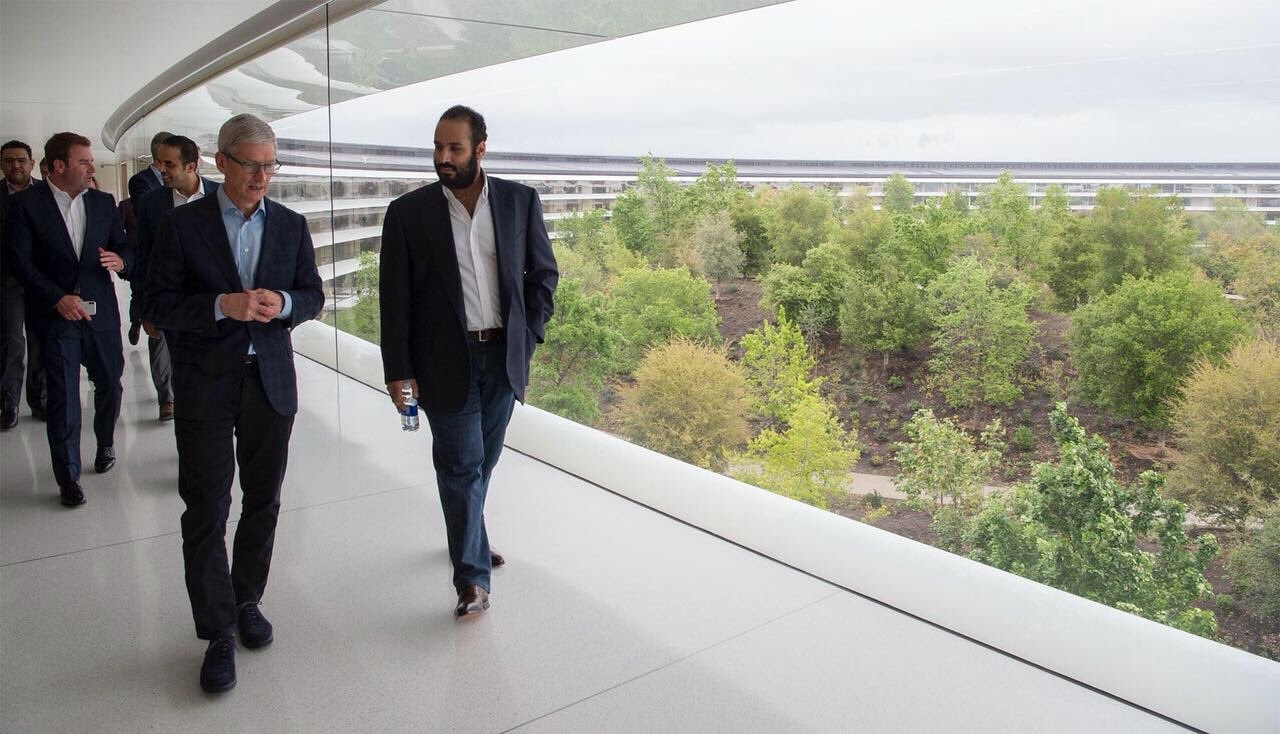
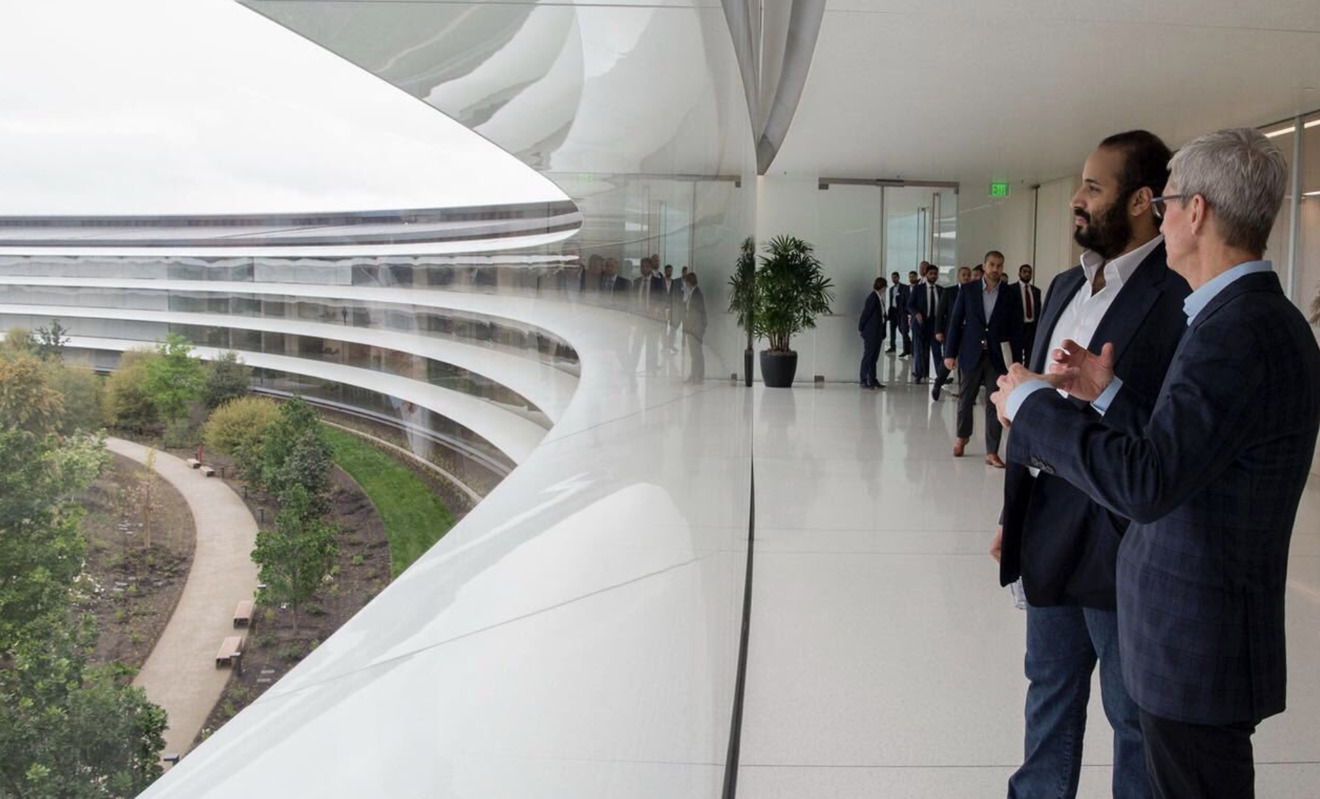
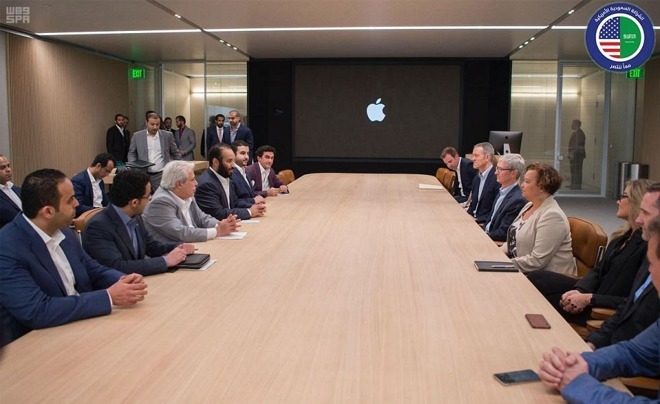
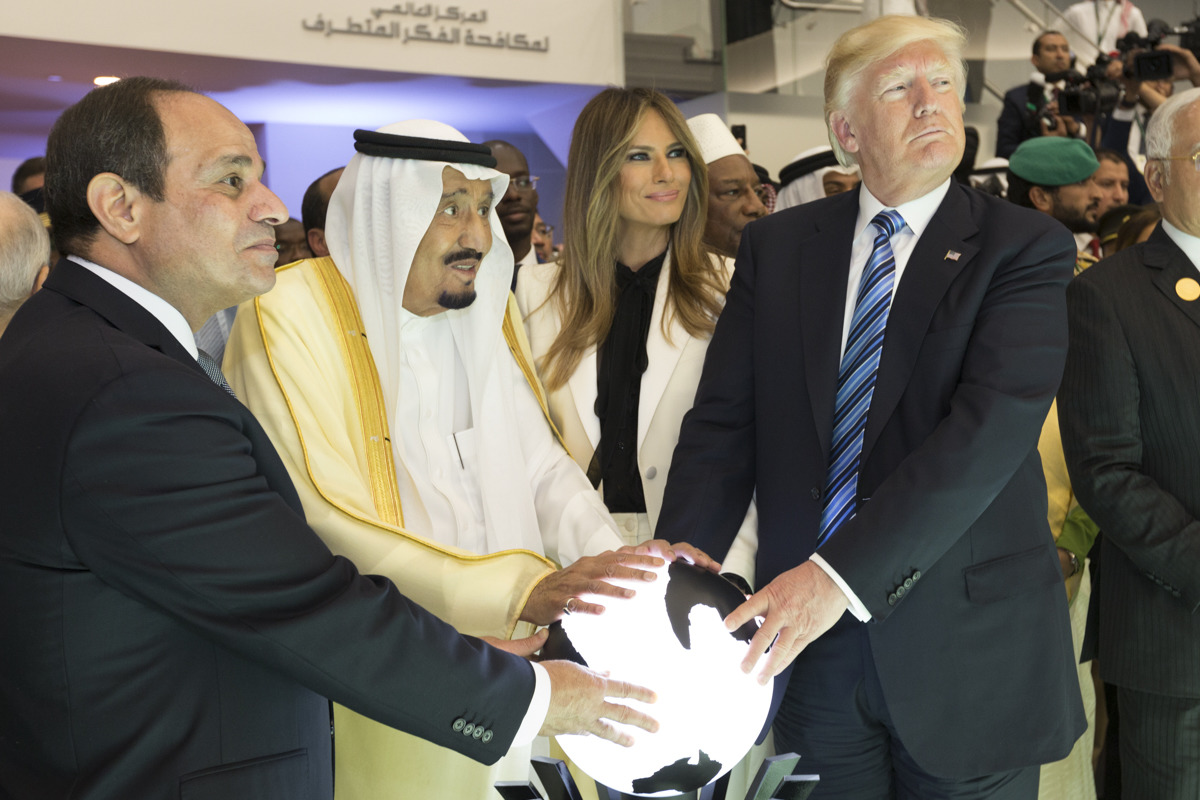
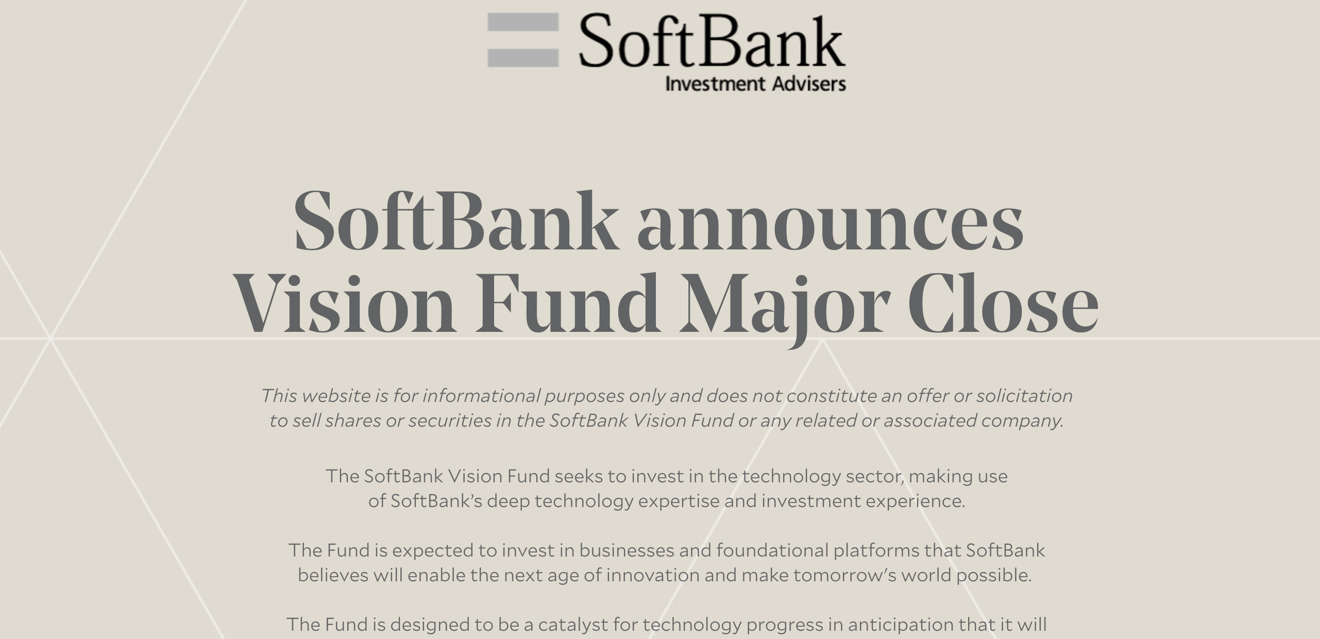
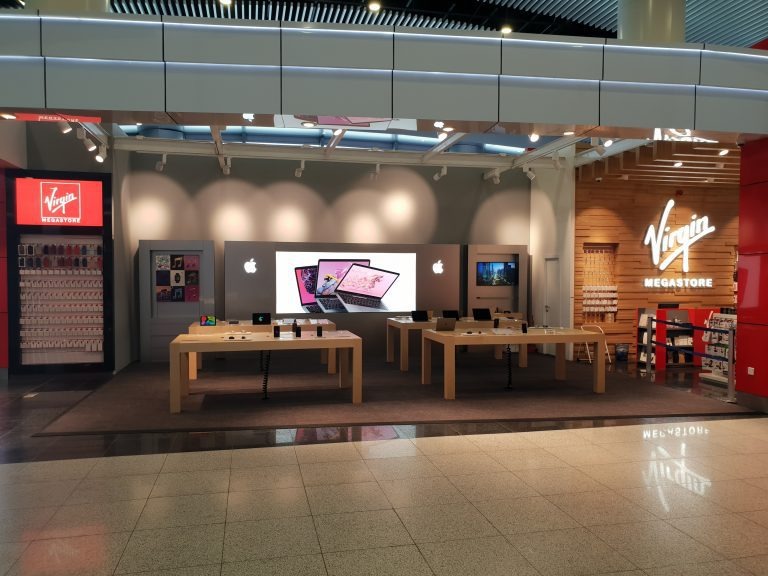
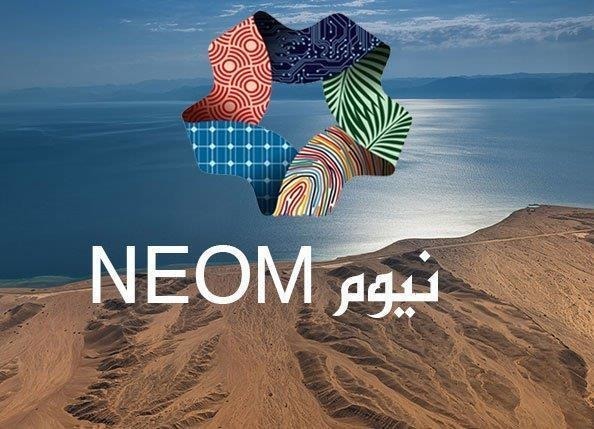







-m.jpg)






 Marko Zivkovic
Marko Zivkovic
 Christine McKee
Christine McKee
 Andrew Orr
Andrew Orr
 Andrew O'Hara
Andrew O'Hara
 William Gallagher
William Gallagher

 Mike Wuerthele
Mike Wuerthele
 Bon Adamson
Bon Adamson




-m.jpg)



83 Comments
This is an important topic to discuss. However, we do have rules for a reason. If you're going to participate in this thread, new user or old, read the commenting guidelines linked at the bottom of every page.
While we're loosening the political restrictions for this thread, and this thread alone for now, this thread will be strictly moderated for other infractions. Be respectful.
Great article and thank you for taking a stand!
While I didn’t see it mentioned, there’s another underlying issue that affects Tim Cook. As an out gay man, I find it curious that he chums it up with someone who would have him executed just for his sexuality (note, not even behavior). It is simply enough to be accused of being gay to be arrested and executed in Saudi Arabia. I understand his fiduciary responsibility as CEO supersedes his personal issues in this context. But if the murder of a journalist is a red line, then why not this?